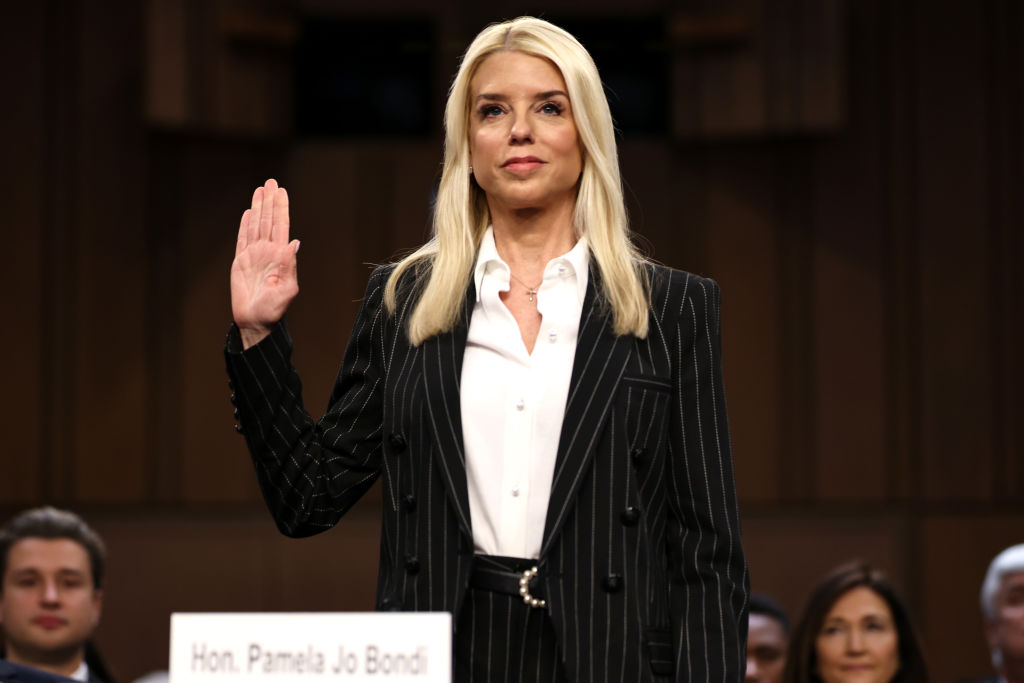Controversial Remarks from Pam Bondi During Attorney General Confirmation Hearing
In the complex arena of United States politics, confirmation hearings serve as high-stakes battlegrounds where nominees present their qualifications while addressing concerns raised by lawmakers. One such recent event featured former Florida Attorney General Pam Bondi, who is poised to become the U.S. Attorney General under the incoming presidency of Donald Trump. During her confirmation hearing before the Senate Judiciary Committee, Bondi’s statements generated significant attention, particularly her comments regarding the impartiality of the Department of Justice (DOJ). Her pledge to restore trust and integrity within the DOJ may have resonated with supporters, but it also raised eyebrows among critics who question the viability of this mandate in a politically charged climate.
Bondi’s Commitment to Neutrality in the DOJ
Bondi emphatically declared that, if confirmed, she would foster an environment free from bias, stating unequivocally that “there will never be an enemy list within the Department of Justice.” This remark speaks to the accusations that have historically plagued the DOJ, with charges of political motivations influencing legal decisions. The former attorney general’s intentions to ensure that partisan concerns do not dictate the agency’s actions seem noble on the surface, as they echo a broader American desire for justice that stands above political divides. However, achieving such a balance raises questions about how ideological lines can be respected while still upholding the rule of law.
The Expectations of an Attorney General
As the highest-ranking law enforcement official in the country, the Attorney General is expected to navigate a minefield of legal complexities while representing the interests of the American populace. Bondi’s assertion that “the partisan weaponization of the Department of Justice will end” suggests an acknowledgment of the criticisms surrounding former administrations that faced accusations of politically motivated prosecutions. These expectations place her at a crossroads where she must satisfy a variety of stakeholders, including Congress, the legal community, and the general public, while remaining true to her commitment to justice.
Restoring Trust Amidst Skepticism
With public trust in institutions often fluctuating, Bondi’s charge to restore integrity within the DOJ is a formidable task. Skepticism towards government agencies is prevalent, largely fueled by political discourse and recent crises that have shaken public confidence. No attorney general operates in a vacuum, and Bondi’s efforts will likely be scrutinized against a backdrop of perceptions about the agency’s political neutrality. Moreover, her ability to navigate this skepticism will largely depend on her actions and decisions once in office.
The Role of Politics in the Justice System
Political affiliations have historically intersected with the justice system, prompting concerns about fairness, accountability, and the overarching goals of legal institutions. As Bondi embarks on her potential role as attorney general, she will face the challenge of disentangling the agency from those politicized issues while promoting a culture of law that prioritizes legal principles over political allegiance. Such a balancing act will be critical as she aims to reassure the public that justice is not merely a reflection of political aspirations.
Public Response and Reactions
The reactions to Bondi’s confirmation hearing statements have been varied. Supporters have lauded her commitment to non-partisanship within the DOJ, emphasizing the need for a leader who can unify the agency’s mission with the expectations of the American people. Detractors, however, question the feasibility of her promises, pointing to previous administrations’ struggles with similar aspirations. The outcome of this hearing reflects broader societal divides concerning trust in government and the integrity of its processes.
Conclusion: A Path Forward
Pam Bondi’s nomination and subsequent confirmation hearing present an intriguing chapter in the ongoing dialogue about the role of the Department of Justice in American society. Her assertions promise a shift towards restoring faith in the integrity of the legal process, yet the complexities of political dynamics and public perception signal that the road ahead may be fraught with challenges. As Bondi seeks to implement her vision of a non-partisan department, her ultimate success will depend on her ability to champion justice for all while maintaining the necessary balance within a politically charged environment.
FAQs
What are the main responsibilities of the U.S. Attorney General?
The U.S. Attorney General serves as the head of the Department of Justice, responsible for enforcing federal laws, overseeing federal prosecutions, providing legal advice to the President, and representing the United States in legal matters.
What issues have historically plagued the Department of Justice?
The DOJ has faced allegations of political bias, weaponization against opponents, and concerns related to the uneven administration of justice, especially during times of political upheaval.
How can the Attorney General restore public trust in the DOJ?
Restoration of trust can be achieved by promoting transparency, ensuring accountability, adopting non-partisan practices, and demonstrating a commitment to justice that prioritizes legal integrity over political interests.
What challenges might Bondi face if confirmed as Attorney General?
Challenges include navigating partisan politics, addressing public skepticism, managing expectations from various stakeholders, and successfully implementing her vision for a non-partisan DOJ in a complicated political landscape.

